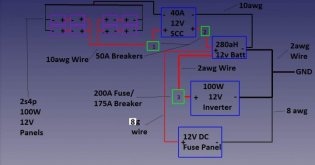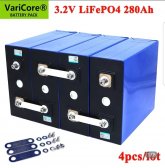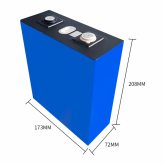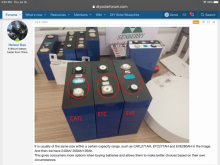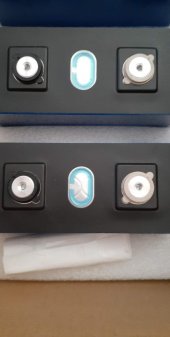Any recommendations on videos or resources to read about this stuff? Because apparently everything I've read/watched has taught me nothing as I still dont understand any of this. As soon as I think I have it figured, I'm only knocked back on my ass realizing I dont know anything...
A lot of it gets taught in safety classes given to employees with engineering degrees who have been working in the field for years, so don't feel bad.
"Grounding, Bonding, and Shielding" "Arc Flash and Arc Blast"
There's lots of scary stuff, and the worst ones involve either 120/240VAC at high current from utility transformers in an industrial (not residential) neighborhood, or 12KV circuit breakers.
But lithium batteries have a degree of risk too. "Vent with fire" which is well known for other lithium chemistries and is rare but not impossible with LiFePO4. What is common is for cells to swell up and be ruined by charging or discharging outside allowable voltage range. Also common is melting and splattering aluminum or copper conductors because a 12V battery can deliver 100,000W into a short circuit. People on the forum have melted terminals of batteries.
Mostly, the protection we have comes from NEC for house wiring. Main breaker is rated to interrupt a short circuit. Wire gauges and grounds keep voltage on appliance frames safe and wires don't overheat, last long enough to trip breaker.
When you work inside electrical panels or on car batteries, accidents can happen. Lithium batteries can deliver several times as much power. People short them out with a wrench or wire.
Once you've assembled a system successfully, the idea is that it should be protected even if you connect excessive load or a wire gets shorted. That's why I suggest a class T fuse close to battery positive terminal, with everything else wired through it. I know from its ratings that it can open in milliseconds and stop current flow.
The other parts also need to be correct size and suitable quality. For instance, many people get off-brand breakers through Amazon or other sources, then find it gets hot or trips under normal load. Some vendors like Blue Sea and Midnight have quality products made by Busmann, LittleFuse, and other good manufacturers.
If you stick with quality name fuse/breaker/switch and look up wire gauge in ampacity tables that takes care of most issues.
I see you have 2 awg and 175A breaker, which looks OK according to table for single conductors in free air, 90 degree insulation.
But if it is a long wire run, could be too much voltage drop at high current, so calculate resistance and check.



